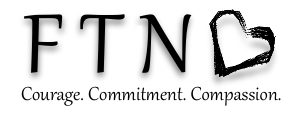Week 4, Part 1: Lessons from Psalms and Proverbs
Day 3 – God’s People and the Fatherless: Psalm 82:3,4; Proverbs 23:10,11
Psalm 82:3,4 – “Defend the poor and fatherless: do justice to the afflicted and needy. Deliver the poor and needy: rid them out of the hand of the wicked.”
Here we are commanded to do four things toward the fatherless and the poor and needy. The first is to “defend” them. Literally this means to defend their cause. We are also commanded to “do justice”, which has the idea of taking up the case and hearing it and making things right. Third, we are to deliver, which according has the idea of bringing into security. Lastly, we are to “rid them out of the hand of the wicked”. This is a very picturesque phrase the word “to rid” literally means “to snatch away” and is also translated as: deliver, rescue, save, strip, plunder, among other things. The word translated here as “hand” can also indicate power. I can’t help but think about how each of these things mirrors God’s relationship to the fatherless and takes us right back to Deuteronomy 10:17-19 and the basis for the command: God’s character!
So, here are my questions: What picture does this paint of God’s intended action of His people toward the fatherless? How does this differ form what God’s response to the wicked is (See Psalm 10:18)? And how do we apply it today?
Proverbs 23:10,11 – “Remove not the old landmark; and enter not into the fields of the fatherless: For their redeemer is mighty; he shall plead their cause with thee.”
This passage is speaking of the inheritance of the fatherless and those who would take over their land by removing the marks that would clearly show the true ownership. God does not take lightly the fact that some would remove these marks and afflict the fatherless in this way. His people are commanded not to do it.
God will stand up as the redeemer of the fatherless. Remember in the story of Ruth, how Boaz became her Kinsman Redeemer? This is the position that God is taking for the fatherless. We are commanded not to remove their inheritance. God will plead their cause with us if we do. God’s desire is also to be their Redeemer from a spiritual perspective. When we come to the New Testament portion of this study we will see that more often than not when God mentions adoption it is in direct correlation with redemption. Just as he desires to see them redeemed from their fatherless state, he desires to see them redeemed from their sin and hell bound state.
Some Questions to ponder:
Is it possible that by allowing the government to care for the fatherless we allow for certain landmarks, especially spiritual landmarks, to be removed from the lives of theses children?
Do we as God’s people have certain responsibilities toward the fatherless? If so, what are they? What are they not?
How does God’s care for the fatherless differ from ours?
Up Next: Week 4 Part 2: Lessons from the Prophets – Day 4: God’s People and the Fatherless
For More Information on FTN, Check out our website at: www.forbidthemnot.com
Follow us on Twitter @forbidthemnot or Facebook
Also Check out Rachel Miller’s Book: The King’s Daughter: A Story of Redemption
